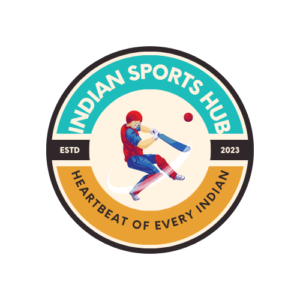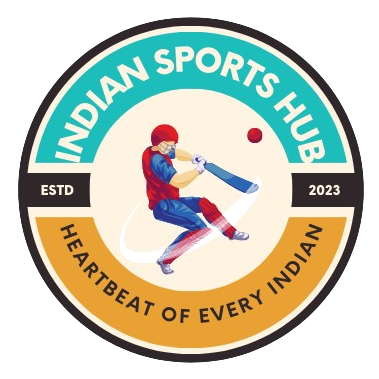Sports nutrition is the cornerstone of athletic success. It’s not just about eating right; it’s about strategically fueling your body to perform at its peak. Whether you’re a professional athlete or someone who loves staying active, understanding the basics of sports nutrition can make a significant difference in your performance and recovery.
The Foundation: Macronutrients
Carbohydrates
Carbs are your body’s primary source of energy. They’re crucial for fueling high-intensity workouts and replenishing glycogen stores. Opt for complex carbohydrates like whole grains, fruits, and vegetables, providing sustained energy rather than quick spikes.
Proteins
Proteins are essential for muscle repair and growth. They are made up of amino acids, which are the fundamental components of muscles. Lean meats, fish, dairy, legumes, and plant-based sources like tofu or tempeh are excellent protein sources to include in your diet.
Fats
Despite their reputation, fats are vital for athletes. They serve as an energy source during low to moderate-intensity exercises and help with nutrient absorption. Focus on healthy fats like avocados, nuts, seeds, and olive oil.
Hydration: The Key to Performance
Staying hydrated is paramount for optimal performance. Dehydration can lead to fatigue, decreased coordination, and cramps. Water is your best friend, but for intense workouts lasting longer than an hour, consider sports drinks to replenish electrolytes lost through sweat.
Timing Is Everything
When and what you eat significantly impacts performance. Pre-workout meals should include easily digestible carbs and some protein, consumed around 2-3 hours before exercise. Post-workout, aim to refuel within 30-60 minutes with a mix of protein and carbs to aid muscle recovery.
Supplements: A Support System
While a balanced diet should be the primary focus, supplements can complement your nutrition plan. Vitamin D, Omega-3 fatty acids, and protein supplements might be beneficial, but always consult a professional before incorporating them.
Tailoring Nutrition to Your Sport
Different sports have different demands. Endurance athletes may need more carbs for sustained energy, while strength-based sports might emphasize protein intake for muscle repair. Tailor your nutrition plan to suit the specific needs of your sport.
Listen to Your Body
Ultimately, your body knows best. Be mindful of the impact different foods have on your energy and performance. Experiment to find what works best for you and seek guidance from nutritionists or dietitians for personalized advice.
Conclusion
Sports nutrition isn’t a one-size-fits-all approach. It’s a blend of science and personalization, understanding how food fuels your body’s performance. You can elevate your athletic performance and overall well-being by focusing on the right balance of macronutrients, staying hydrated, timing your meals strategically, considering supplements wisely, and adapting to your sport’s demands. Remember, it’s not just about what you eat, but how you optimize it to reach your athletic goals.
Frequently Asked Questions
1. What is the best diet for athletes?
There isn’t a one-size-fits-all answer. Athletes need a balance of carbohydrates, proteins, and fats, tailored to their sport and individual needs. It’s often advised to eat a diet filled with whole foods like fruits, vegetables, lean proteins, and healthy fats.
2. How important is hydration for athletic performance?
Hydration is critical. Dehydration can lead to decreased performance, fatigue, and even health risks. Athletes should aim to stay hydrated by consuming water regularly throughout the day and replenishing fluids lost during exercise.
3. Are sports drinks necessary, or is water sufficient?
Water is usually sufficient for shorter workouts. However, for prolonged or intense exercise sessions lasting over an hour, sports drinks containing electrolytes can help replenish lost minerals and provide necessary energy.
4. When should I eat before and after a workout?
Aim to eat a balanced meal containing carbs and proteins 2-3 hours before exercise. Post-workout, consume carbs and proteins within 30-60 minutes to aid in muscle recovery.
5. Are supplements necessary for athletes?
While a well-rounded diet should be the focus, supplements can support specific needs. Consult a healthcare professional or nutritionist before taking any supplements to ensure they align with your goals and dietary requirements.
6. Can sports nutrition benefit non-athletes?
Absolutely. Sports nutrition principles can benefit anyone leading an active lifestyle, helping with energy levels, recovery, and overall well-being. Tailoring nutrition to individual needs can optimize daily performance, whether in sports or regular activities.
7. How can I determine the right nutrition plan for my sport?
Consider consulting a sports nutritionist or dietitian who can assess your specific needs based on the demands of your sport, your training regimen, and individual factors like body composition and metabolic rate.
8. Is it essential to track macros and calories for athletic performance?
While tracking can be beneficial for some, it’s optional for some. Some athletes find it helpful to monitor their intake to ensure they’re meeting their nutritional goals, while others may prefer a more intuitive approach. Experiment to discover the most effective approach for your needs.
9. Can certain foods improve athletic performance?
Foods rich in antioxidants, healthy fats, and complex carbohydrates can enhance athletic performance and aid in recovery. However, individual responses to foods may vary, so it’s essential to pay attention to how your body reacts to different foods.
10. How can I optimize my nutrition for weight management without compromising performance?
Focus on nutrient-dense foods, maintain a balanced diet, and adjust portion sizes based on your energy expenditure. Consulting a nutritionist can help create a plan that supports both your performance and weight goals.



